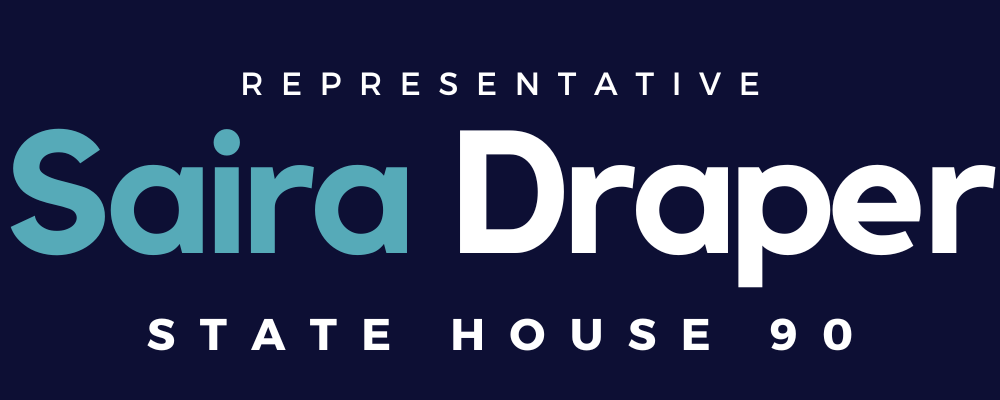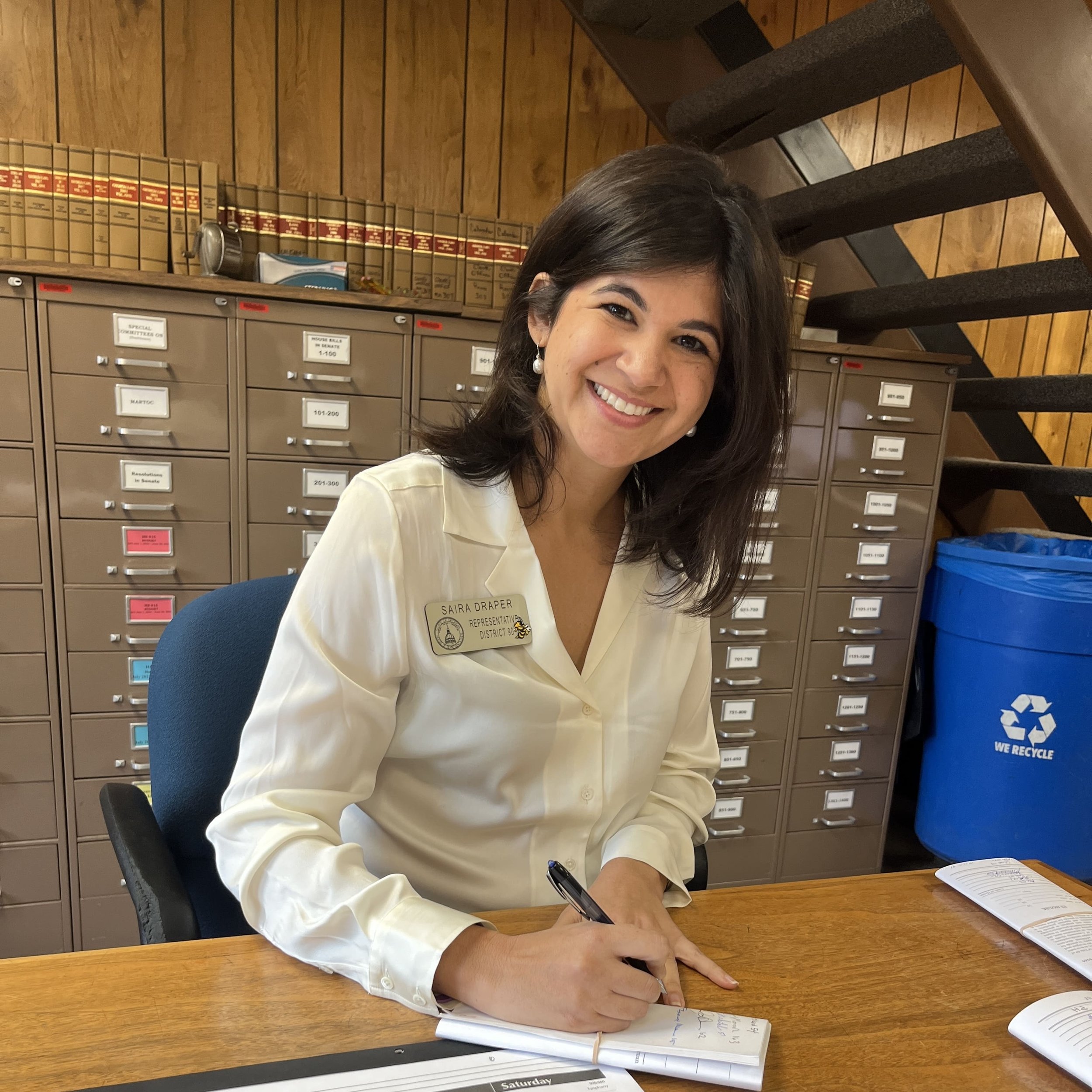Legislative Session Week 2
Budget week, and the case of the 16 billion dollar surplus
January 22, 2024
It’s all about the money, money, money
Last week was budget week. The House was in recess, but we were hard at work. The focus was on plans for spending for the rest of this fiscal year and the next budget year.
The Governor’s amended budget for this year totals $37.5 billion but he cuts spending to $36.2 billion for the 2025 fiscal year that begins July 1.
Speaking virtually from the World Economic Forum in Switzerland, Gov. Brian Kemp told the Appropriations Committee the state’s $16 billion surplus, or “rainy day fund,” would allow bonuses and pay raises for teachers, law enforcement, and other state workers. He also wants to use the excess money to cover the $1.1 billion cost of speeding up the timing for more tax cuts.
But even as the Governor and some legislators boasted about how flush the state is, the state’s new economist warned of a slight recession in the coming months. He said legislators should be conservative as they allocate tax dollars for the next year.
I applaud spending surplus dollars on salaries and health insurance for government workers. At the same time, I’d like to see some of that money go to Georgia’s school systems and to facilitate access to health care for those without insurance. In a state with so many unmet needs, a surplus of the current magnitude represents missed opportunities to help Georgians.
The Governor proposed money to help school districts pay for busing children to schools. This is a big win. For several years, local school systems have suffered a financial crunch as the state’s contribution to the cost of shuttling children to and from school has been stagnating. But if we can send more state money to local systems, there will be a ripple effect for our local schools as they would then be able to use fewer local dollars to pay for school buses, gas, and maintenance and salaries for drivers and divert that money to other school programs or teacher pay.
The Governor’s budget also includes money for school security grants. School systems have the discretion to use these funds as they wish, whether on more resource officers, metal detectors, or something else. I hope this initiative takes the wind out of the sails of the Lieutenant Governor's idea from a few months ago to pay teachers to be armed in the classroom.
Passing the budget is the only thing the General Assembly is constitutionally required to do each year. We’ll watch how the budget process plays out.
Secretary Raffensperger speaks on the proposal to remove QR codes from the ballot
Last week I wrote about the proposal supported by Republican legislative leadership to replace the QR code on the ballot that gets printed after a person marks their vote on the touchscreen voting device. Supporters of that change claim that since they cannot read the QR code, they can’t trust their vote will be accurate.
During appropriations hearings this week, the secretary of state told legislators his office had no plans to replace the QR codes this election cycle. He told them changing the ballot can’t be done this year with at least three elections looming. Moreover, it would cost millions of dollars to replace voting equipment in all of Georgia’s 159 counties if the QR codes are eliminated. Several republicans at the hearing expressed frustration and displeasure with the Secretary for planning 2024 without an intent to replace the QR codes. My suspicion is this fight is not over, and it is possible we will see retaliation against the Secretary by members of the General Assembly who are unhappy with how the QR code issue is playing out.
Ban on ranked-choice voting?
The Lieutenant Governor doesn’t care much for ranked choice voting. He and some other Republican members of the Senate are proposing to ban it with S.B. 355.
In his press release the Lieutenant Governor said of ranked-choice voting: “This type of voting system, pushed by dark money groups, could cause a drastic increase in the number of ballots being thrown out, disenfranchising Georgia voters. Georgians deserve to have the utmost faith in their elections, and those pushing ranked-choice voting are only hindering that faith. I am proud to ban this electoral disaster and work to make Georgia’s elections the safest in the nation.”
But S.B. 355 would have our overseas military personnel vote via ranked choice.
So why is Jones saying on the one hand ranked choice voting is an “electoral disaster,” but also saying it’s good enough for our overseas military voters?
In 2021, after historic victories by Senators Warnock and Ossoff, Republicans changed the law to shorten the time period between the general election and the runoff from 9 weeks to 4 weeks.
They did this for a variety of reasons, but the biggest reason was so the state wouldn’t have to re-open the voter registration window between the general and runoff. In 2020, thousands of new voters registered to vote after Biden’s win propelling Senators Ossoff and Warnock to victory in the runoff.
However, federal law requires that US voters living abroad be sent their ballot 45 days before a federal election. And obviously that requirement could not be met if the runoff period was shortened to four weeks. To comply with federal law, Republicans decided overseas voters should be sent rank choice ballots for the general election– which would cover the general election and runoff in the event there was a runoff (and obviating the need to send a ballot for the runoff!).
What we see here is some classic doublespeak. Ranked-choice voting is an “electoral disaster,” unless, it seems, it’s necessary to provide Republicans an electoral advantage.
Pre-K expansion plan
I’m very excited about a new push from the House to expand funds to Georgia pre-K. Funding for Georgia's public preschools is long overdue. Among the list of recommendations is salaries for pre-K teachers that align with educators who work with older children, and class sizes capped at 20 rather than 20. The overall package of recommendations will cost Georgia $100 million, which could be taken from lottery reserves.
My daughter went through the Georgia pre-K program, and my younger son will start in the Fall. Early childcare is not only excellent for our children’s development, but it saves families child care costs, and makes it possible for many parents to go back to work. I support any effort to increase the quality of programming and make pre-K more accessible to more families.
Reading to the Pre-K students at Tara Academy in Gresham Park in October 2023
Is this the year for Medicaid expansion?
For now, Georgia is one of only 10 states that have declined to expand Medicaid to all uninsured adults, even though the federal Affordable Care Act will pay 90 percent of the cost.
State leaders have insisted for years that Georgia cannot afford to kick in the remaining 10 percent.
But minds may be changing, and I hope this is the year that Georgia offers Medicaid to all our uninsured citizens and not just children in poverty and a sliver of the adult population.
Not only is it kind to care for Georgians who struggle, it makes economic sense for the state to provide medical care for all and to keep its workforce healthy. And the fiscal case makes it a no-brainer– Medicaid expansion would allow us to cover five times more Georgians for less than we pay now, help keep hospitals from closing, and provide a substantial number of additional jobs in Georgia.
What the people want
I’m encouraged by the results of a poll conducted by The Atlanta Journal-Constitution and the University of Georgia’s School of Public and International Affairs that posed questions on several critical issues.
Two-thirds of the more than 1,000 people polled said they oppose school vouchers, which use public money to pay for private school. That same percentage of voters said they supported expanding Medicaid to all Georgia’s uninsured adults.
We were elected to represent the wishes and hopes of the people. I hope the results of this poll will push my Republican colleagues to give the people what they want.
Politics over people
I’m disturbed by the news that Georgia has opted out of a federal program that would provide food to kids during the summer when they are not in school. Estimates are that Georgia would have received $138 million this summer to feed more than 1 million children at risk of going hungry during the summer months. This new federal program would have enhanced other state and federal nutrition programs like the Supplemental Nutrition Assistance Program (SNAP, previously known as food stamps) and the Women, Infants, and Children (WIC) program currently in place in Georgia.
But the governor’s office says the state already has summer nutrition programs that work fine--so he's turning down this substantial resource. Like Senator Warnock said… “Few things are more puzzling than denying Georgians the benefits of their own tax dollars at work.”
It is unacceptable that we decline more federal help feeding our children, 64 percent of whom already qualify for low-cost or free school lunches.
It feels like an election year– Republicans won’t give the Biden administration a win, even when that decision comes at the expense of our kids.
This coming week should be busy. Committees will start meeting and more bills will be introduced. Please contact me if you have opinions on any of the issues we take up.
I want to hear from you.
To keep you up to date, I will be sending newsletters often during the session and posting on social media. Please sign up if you haven't already!
In service,






